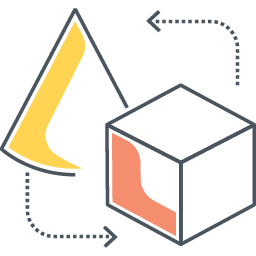Streamline Customer Relationships with CRM Systems
We’re dedicated to elevating your business with a dynamic CRM strategy, tailored to your brand’s needs.
Systems are designed to manage interactions with current and potential customers. They store customer and prospect contact information, accounts, leads, and sales opportunities in one central location, making it easier for businesses to manage and nurture their relationships with customers.
BEST FOR YOU
Here are some types of CRM systems

This type focuses on automating and improving customer-facing processes such as sales, marketing, and service. It includes functionalities like lead management, contact management, sales automation, and customer support. Operational CRM helps businesses streamline their sales processes, track customer interactions, and provide better customer service.

Analytical CRM focuses on analyzing customer data to gain insights into customer behavior, preferences, and trends. It involves techniques such as data mining, predictive analytics, and segmentation to identify valuable customer segments, predict future buying behavior, and personalize marketing campaigns. Analytical CRM helps businesses make data-driven decisions and tailor their marketing strategies to meet customer needs more effectively.
ERP vital in diverse sectors, tailored solutions optimize functionality

Manufacturing Industry

Hospitality Sector

Healthcare Industry

Finance Sector

Retail Industry

Automotive

Energy and Utilities

Education

Telecommunications

Real Estate

Manufacturing Industry

Hospitality Sector

Healthcare Industry

Finance Sector

Retail Industry

Automotive

Energy and Utilities

Education

Real Estate

Telecommunications

Why CRM Need to used

Enhanced Customer Engagement
RM systems enable businesses to engage with customers on a personalized level, understanding their preferences, needs, and behaviors. This fosters stronger relationships and loyalty.

Improved Customer Satisfaction
By providing tailored experiences and efficient support, CRM helps businesses meet customer expectations, resolving issues promptly, and delivering products or services that align with their requirements.

Streamlined Sales Processes
In sales-centric industries, CRM streamlines lead management, opportunity tracking, and sales forecasting. It ensures sales teams stay organized, follow up on leads efficiently, and close deals effectively.

Optimized Marketing Campaigns
CRM data empowers marketing teams to segment audiences, target specific demographics, and personalize messaging. This leads to higher conversion rates, improved ROI on marketing investments, and better campaign performance.


FAQ`s
CRM stands for Customer Relationship Management. It refers to strategies, technologies, and practices that companies use to manage and analyze customer interactions and data throughout the customer lifecycle, with the aim of improving relationships and driving sales growth.
CRM helps businesses better understand their customers’ needs and behaviors, leading to improved customer satisfaction, retention, and loyalty. It also streamlines processes, enhances communication, and boosts overall efficiency.
Typical CRM systems offer features such as contact management, lead management, sales automation, marketing automation, customer support, analytics, and reporting functionalities. These features help businesses manage and track interactions with customers across various touchpoints.
CRM provides sales teams with centralized access to customer data, allowing them to track leads, manage opportunities, and prioritize tasks more effectively. It also enables better collaboration among team members and provides insights to identify sales trends and opportunities.
CRM systems help marketers create targeted campaigns by segmenting customers based on their preferences, behaviors, and purchase history. They also provide tools for automating marketing workflows, tracking campaign performance, and measuring ROI, leading to more effective and personalized marketing strategies.
Get Free Quotation ?
CONTACT US
If you have any questions about what we offer for consumers or for business.






